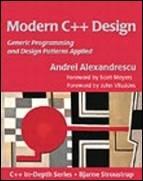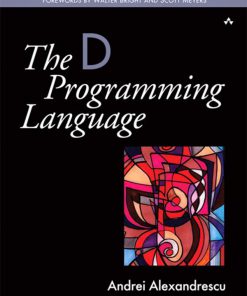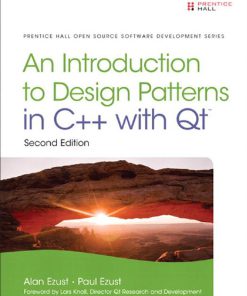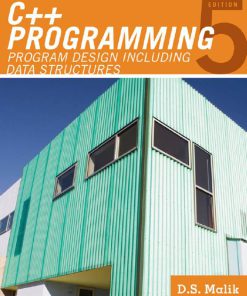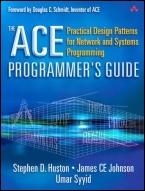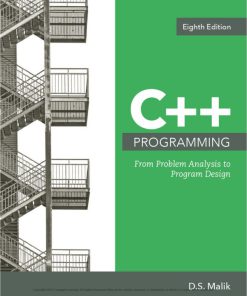Modern C Design Generic Programming and Design Patterns Applied 1st Edition by Andrei Alexandrescu, Scott Meyers, John Vlissides ISBN 9780133387612 0133387615
$50.00 Original price was: $50.00.$25.00Current price is: $25.00.
Authors:By Andrei Alexandrescu , Series:Computer Science [256] , Author sort:Alexandrescu, By Andrei , Ids:0201704315 , Languages:Languages:eng , Publisher:Addison Wesley , Comments:Comments:Published February 01, 2001, 352 pages.
Modern C Design Generic Programming and Design Patterns Applied 1st Edition by Andrei Alexandrescu, Scott Meyers, John Vlissides – Ebook PDF Instant Download/Delivery. 9780133387612 ,0133387615
Full download Modern C Design Generic Programming and Design Patterns Applied 1st Edition after payment
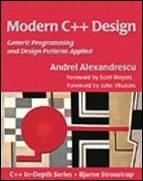
Product details:
ISBN 10: 0133387615
ISBN 13: 9780133387612
Author: Andrei Alexandrescu, Scott Meyers, John Vlissides
Modern C Design Generic Programming and Design Patterns Applied 1st Edition Table of contents:
Part I: Techniques
1. Policy-Based Class Design
1.1. The Multiplicity of Software Design
1.2. The Failure of the Do-It-All Interface
1.3. Multiple Inheritance to the Rescue?
1.4. The Benefit of Templates
1.5. Policies and Policy Classes
1.6. Enriched Policies
1.7. Destructors of Policy Classes
1.8. Optional Functionality Through Incomplete Instantiation
1.9. Combining Policy Classes
1.10. Customizing Structure with Policy Classes
1.11. Compatible and Incompatible Policies
1.12. Decomposing a Class into Policies
1.13. Summary
2. Techniques
2.1. Compile-Time Assertions
2.2. Partial Template Specialization
2.3. Local Classes
2.4. Mapping Integral Constants to Types
2.5. Type-to-Type Mapping
2.6. Type Selection
2.7. Detecting Convertibility and Inheritance at Compile Time
2.8. A Wrapper Around type_info
2.9. NullType and EmptyType
2.10. Type Traits
2.11. Summary
3. Typelists
3.1. The Need for Typelists
3.2. Defining Typelists
3.3. Linearizing Typelist Creation
3.4. Calculating Length
3.5. Intermezzo
3.6. Indexed Access
3.7. Searching Typelists
3.8. Appending to Typelists
3.9. Erasing a Type from a Typelist
3.10. Erasing Duplicates
3.11. Replacing an Element in a Typelist
3.12. Partially Ordering Typelists
3.13. Class Generation with Typelists
3.14. Summary
3.15. Typelist Quick Facts
4. Small-Object Allocation
4.1. The Default Free Store Allocator
4.2. The Workings of a Memory Allocator
4.3. A Small-Object Allocator
4.4. Chunks
4.5. The Fixed-Size Allocator
4.6. The SmallObjAllocator Class
4.7. A Hat Trick
4.8. Simple, Complicated, Yet Simple in the End
4.9. Administrivia
4.10. Summary
4.11. Small-Object Allocator Quick Facts
Part II: Components
5. Generalized Functors
5.1. The Command Design Pattern
5.2. Command in the Real World
5.3. C++ Callable Entities
5.4. The Functor Class Template Skeleton
5.5. Implementing the Forwarding Functor::operator()
5.6. Handling Functors
5.7. Build One, Get One Free
5.8. Argument and Return Type Conversions
5.9. Handling Pointers to Member Functions
5.10. Binding
5.11. Chaining Requests
5.12. Real-World Issues I: The Cost of Forwarding Functions
5.13. Real-World Issues II: Heap Allocation
5.14. Implementing Undo and Redo with Functor
5.15. Summary
5.16. Functor Quick Facts
6. Implementing Singletons
6.1. Static Data + Static Functions != Singleton
6.2. The Basic C++ Idioms Supporting Singletons
6.3. Enforcing the Singleton’s Uniqueness
6.4. Destroying the Singleton
6.5. The Dead Reference Problem
6.6. Addressing the Dead Reference Problem (I): The Phoenix Singleton
6.7. Addressing the Dead Reference Problem (II): Singletons with Longevity
6.8. Implementing Singletons with Longevity
6.9. Living in a Multithreaded World
6.10. Putting It All Together
6.11. Working with SingletonHolder
6.12. Summary
6.13. SingletonHolder Class Template Quick Facts
7. Smart Pointers
7.1. Smart Pointers 101
7.2. The Deal
7.3. Storage of Smart Pointers
7.4. Smart Pointer Member Functions
7.5. Ownership-Handling Strategies
7.6. The Address-of Operator
7.7. Implicit Conversion to Raw Pointer Types
7.8. Equality and Inequality
7.9. Ordering Comparisons
7.10. Checking and Error Reporting
7.11. Smart Pointers to const and const Smart Pointers
7.12. Arrays
7.13. Smart Pointers and Multithreading
7.14. Putting It All Together
7.15. Summary
7.16. SmartPtr Quick Facts
8. Object Factories
8.1. The Need for Object Factories
8.2. Object Factories in C++: Classes and Objects
8.3. Implementing an Object Factory
8.4. Type Identifiers
8.5. Generalization
8.6. Minutiae
8.7. Clone Factories
8.8. Using Object Factories with Other Generic Components
8.9. Summary
8.10. Factory Class Template Quick Facts
8.11. CloneFactory Class Template Quick Facts
9. Abstract Factory
9.1. The Architectural Role of Abstract Factory
9.2. A Generic Abstract Factory Interface
9.3. Implementing AbstractFactory
9.4. A Prototype-Based Abstract Factory Implementation
9.5. Summary
9.6. AbstractFactory and ConcreteFactory Quick Facts
10. Visitor
10.1. Visitor Basics
10.2. Overloading and the Catch-All Function
10.3. An Implementation Refinement: The Acyclic Visitor
10.4. A Generic Implementation of Visitor
10.5. Back to the “Cyclic” Visitor
10.6. Hooking Variations
10.7. Summary
10.8. Visitor Generic Components Quick Facts
11. Multimethods
11.1. What Are Multimethods?
11.2. When Are Multimethods Needed?
11.3. Double Switch-on-Type: Brute Force
11.4. The Brute-Force Approach Automated
11.5. Symmetry with the Brute-Force Dispatcher
11.6. The Logarithmic Double Dispatcher
11.7. FnDispatcher and Symmetry
11.8. Double Dispatch to Functors
11.9. Converting Arguments: static_cast or dynamic_cast?
11.10. Constant-Time Multimethods: Raw Speed
11.11. BasicDispatcher and BasicFastDispatcher as Policies
11.12. Looking Forward
11.13. Summary
11.14. Double Dispatcher Quick Facts
Appendix. A Minimalist Multithreading Library
A.1. A Critique of Multithreading
A.2. Loki’s Approach
A.3. Atomic Operations on Integral Types
A.4. Mutexes
A.5. Locking Semantics in Object-Oriented Programming
A.6. Optional volatile Modifier
A.7. Semaphores, Events, and Other Good Things
A.8. Summary
Bibliography
Index
People also search for Modern C Design Generic Programming and Design Patterns Applied 1st Edition:
modern c++ design generic programming and design patterns applied pdf
modern c++ design pdf
modern c development
c generic programming
You may also like…
eBook PDF
The D Programming Language 1st Edition by Andrei Alexandrescu ISBN 0132654474 9780132654470

